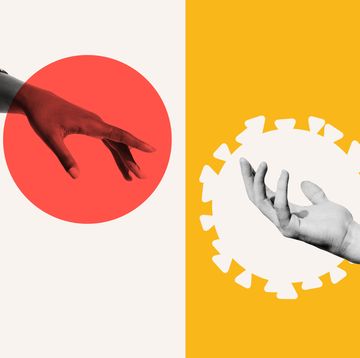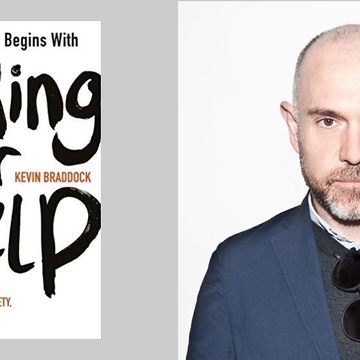The second time I got blown up in Afghanistan, they sent me back to the UK for some rest and recuperation. Two weeks later I found myself back out there, lying awake in a mosquito tent, thinking about how my marriage had just ended and wondering whether I was I was ever going to see my kid again.
I got married too young. Our son was the only thing keeping us together. That night, I lay awake for hours believing I had nothing, that I had been a crap husband and that I wasn't a good father.
I was scared I was going to let my team down.
I made a conscious decision that I would sort out what was in my head and make a plan, because I couldn't carry on the way I was.
-----------------------------------------------------------------------------------------------------
I was bought up in an old council estate in Telford with an abusive stepfather and mother who was scared of him. I struggled to read and write and was bullied at school for being the kid with a girl's name, so the army was an escape for me.
Bomb disposal operators are a very strange beast and you’ve got to have a weird sense of humour. People are looking to you to solve a problem, whether that is a suspect bag in a doorway or a mass casualty with bombs all over the place.
There may be dead soldiers or people screaming in pain but we’re trained to think logically and not just run in there or we’ll become a casualty ourselves. The way we would compartmentalise that pressure is with humour, but it’s extremely unhealthy. I used to put it all in a box and lock it away and move on.
After doing five or six devices in a day I fell into the realms of thinking 'well, I could of died ten times there and I didn’t'. I got this God complex where I honestly believed I couldn’t die but really I was just lucky.
Numerous times I’ve sat over a devices which could kill me in a heartbeat and turn me into red mist and I’d just start laughing because of the ridiculousness of what I was facing. Every night I’d dream about my own death and it got to the point where if I didn’t dream about death, I’d wake up and think something was wrong.
What some people in the military do is suck it up and get on with it, but bottling it up like that is where it can go wrong. Now, my way way of switching off is going to sit on a beach for the weekend with nothing on my mind but walking around or relaxing.
To be honest, I wasn’t a believer in PTSD. I used to think it was just an easy way out and for people feeling sorry for themselves. Going to Afghanistan and seeing what we saw made me understand that everyone reacts differently.
Men don’t like talking about things because they worry it’s not masculine. They don’t want to fail or be seen to be weak and often don’t like talking about emotions or appear vulnerable.
There’s a lot more education and acceptance from the young guys coming through [the military] now. If someone has a mental health issue it’s recognised that it’s an issue and dealt with in an extremely sensitive way.
That night in Sangin was a moment that I’ll always remember. To me it was all about pushing it to the back of my mind and saying ‘I’ll deal with it later’. I know now when I’m knackered and have to switch off, otherwise I’ll start tipping over that edge and feeling the pressure.
As told to Olivia Ovenden
'Painting the Sand: One Man’s Fight Against The Taliban Bomb-makers of Helmand' is out now'
For information and support regarding mental health, check out thecalmzone.net; mind.org.uk; consolecounselling.co.uk; samaritans.org.





